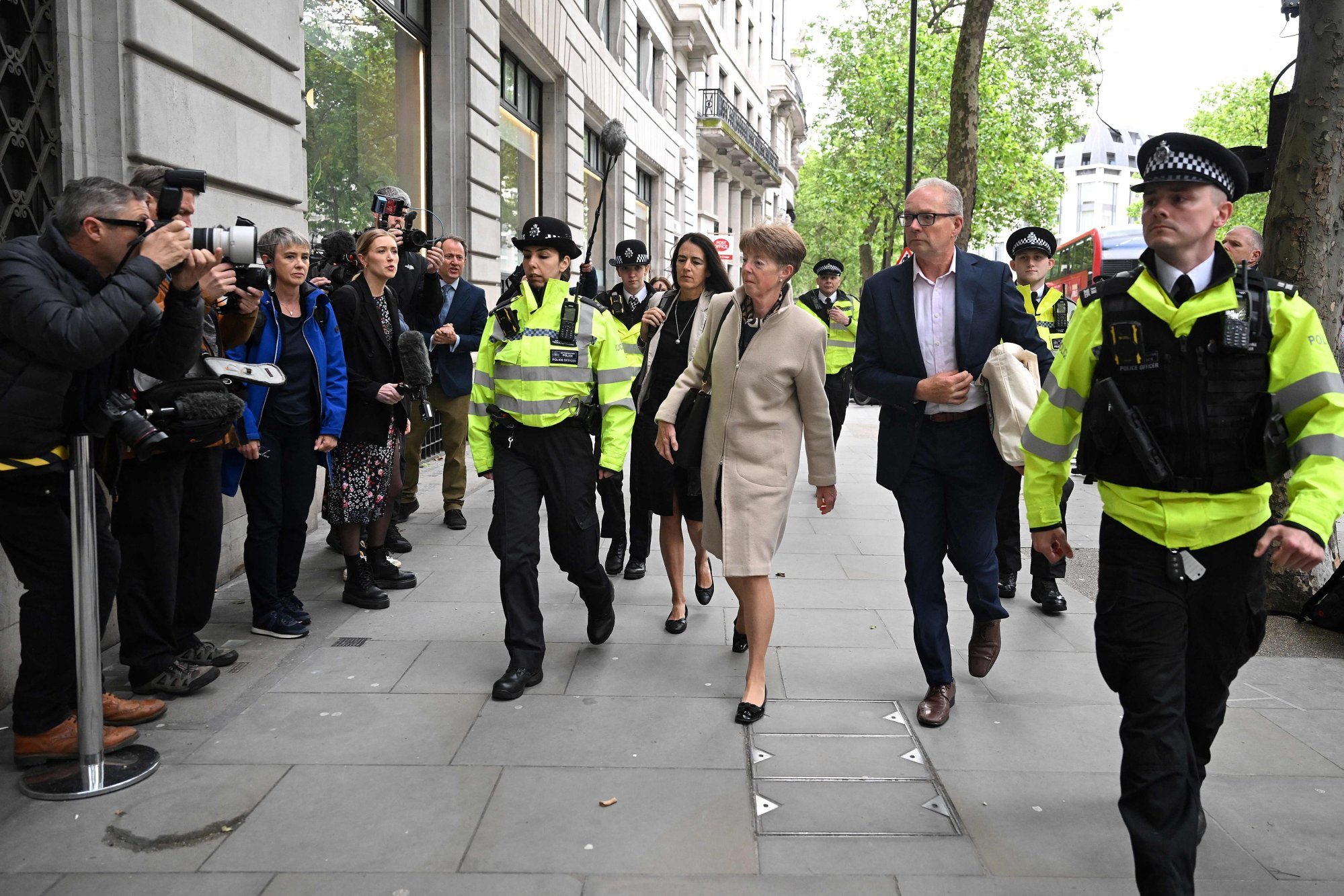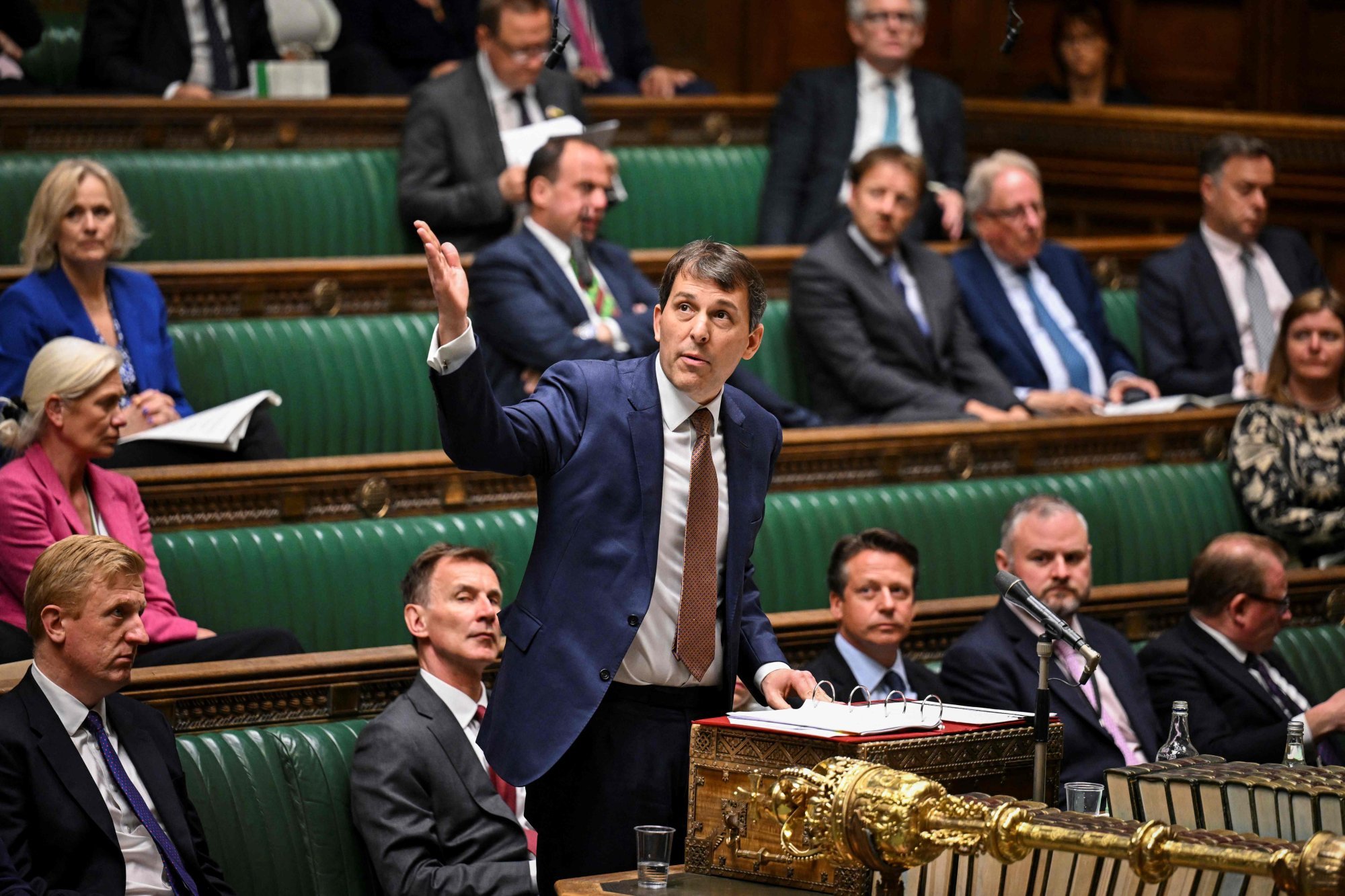
2 cases show UK cannot cast the first stone on rule of law
- Two cases in Britain have recently been concluded, with damning evidence of abuse of government power and cover-ups
- In drawing a line under the infected blood scandal, the British prime minister acknowledged that it was ‘a day of shame for the British state’
For those who hold the United Kingdom up as a beacon of the rule of law, the past few weeks have been challenging. Two astonishing cases – one of them in contention for five decades – have at last been concluded with damning evidence of abuse of government power, cover-ups and wholesale disregard of the principle of the rule of law.
Many others and their families have lived debilitated lives. Many were infected years after the British government knew that the blood plasma products were contaminated, but continued to use them nevertheless.
UK Prime Minister Rishi Sunak has finally drawn a line under the scandal, promising compensation to affected families that may amount to more than £10 billion (US$12.7 billion) and acknowledging that this was “a day of shame for the British state”, with “layer upon layer of hurt, endured across decades” by thousands of innocent people.
Sir Brian Langstaff, who headed the inquiry into the disaster, said in releasing the seven-volume final report: “This disaster was not an accident. People put their faith in doctors and in the government to keep them safe, and their trust was betrayed.”
This involved the prosecution (some would say persecution) between 1999 and 2015 of around 900 sub-postmasters for alleged theft and fraud in what Sunak has called “one of the greatest miscarriages of justice in our nation’s history”. Victims and their families suffered as a result of court cases, criminal convictions and imprisonments, job losses and debt.

The delay in the case of the blood contamination scandal simply beggars belief. As the Langstaff report concluded, there were “systemic, collective and individual failures to deal ethically, appropriately and quickly, with the risk of infections being transmitted in blood, with the infections when the risk materialised, and with the consequences for thousands of families”.
A World in Action documentary as far back as 1975 showed that blood products could be contaminated with hepatitis because many blood donors, in particular in the United States, were high-risk drug users. In 1983, the US Centres for Disease Control warned that “blood products or blood appear responsible for Aids among haemophiliac patients”. In 1984, Britain’s Department of Health was still importing blood products from the US because of shortages in the UK. Internal memos showed that the department knew “conclusively” that HIV was being found in the blood products.
For decades, the British government denied responsibility and refused public inquiries, even as other governments acknowledged responsibility and provided compensation for using US blood imports from high-risk groups.
First was Canada in 1989. The French government made over 15,000 compensation offers to victims and their families between 1992 and 1998. In Japan, 4,000 victims have been compensated since 1996. Even in the US, where 10,000 haemophiliacs contracted HIV, settlements were made with blood plasma-makers in 1996.
It was only in 2017 that then UK prime minister Theresa May established a public inquiry, and only in 2022 that interim compensation payments were agreed. Those delays left many victims and their families suffering for decades. What compensation cheques could make up for such colossal loss is anyone’s guess. The government said last week that victims with hepatitis can receive as much as £1.412 million to £1.557 million, while those with HIV can expect £2.225 million to £2.615 million.

Rather than acknowledge the possibility of Horizon software bugs, the Post Office concluded that thousands of village branch managers were suddenly systematically rigging the books. A blizzard of prosecutions followed, with 900 convicted of theft, fraud and false accounting and 236 sent to prison.
It bamboozles me that so many Post Office seniors should have abandoned all common sense and believed that thousands of sub-postmasters could separately and all at once have taken to petty theft. The truth will no doubt eventually be told through the gritted teeth of complicit senior officials, but meanwhile, the lives of thousands of British families have for two decades been thrown into turmoil.
Justice may finally have been done, but justice so delayed cannot sit comfortably with any reasonable definition of true justice. Before the UK throws bricks at the rule of law in Hong Kong, it might ponder the state of the rule of law closer to home. As the saying goes, people in glass houses …
David Dodwell is CEO of the trade policy and international relations consultancy Strategic Access, focused on developments and challenges facing the Asia-Pacific

